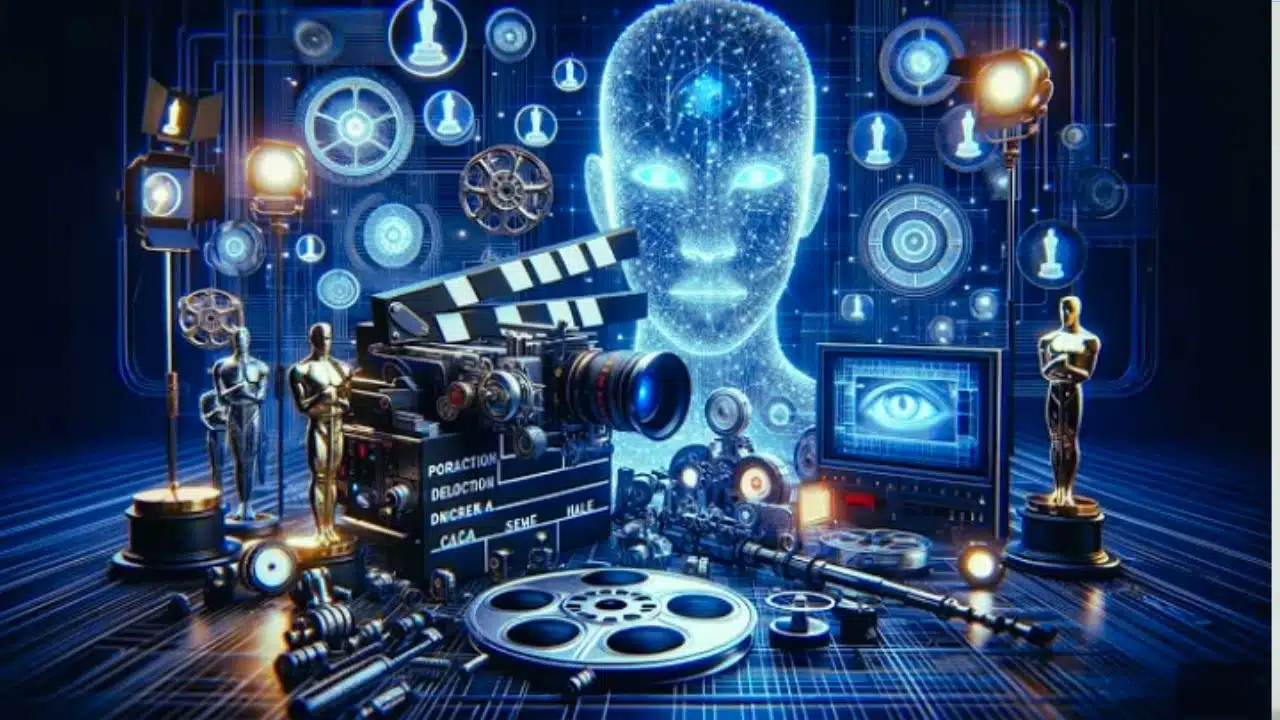The growing use of artificial intelligence (AI) in filmmaking has sparked debate within the film industry, particularly regarding its role in Oscar-nominated movies.
Recent controversies surrounding AI use in films like The Brutalist and Emilia Pérez have prompted the Academy of Motion Picture Arts and Sciences to explore new rules that could mandate AI disclosure in Oscar submissions.
AI’s Expanding Role in Oscar Contenders
AI is increasingly being used in major films, from visual effects (VFX) to audio enhancements. Movies such as A Complete Unknown, Dune: Part Two, and Emilia Pérez have leveraged AI technology in various ways, highlighting the widespread adoption of these tools.
The Brutalist recently made headlines for using AI-driven voice modification software Respeecher to refine certain Hungarian language dialogue, sparking discussions on ethical boundaries in film production.
Visual effects studios, such as Rising Sun Pictures, have also integrated AI into their processes. The company’s Revize machine learning toolset has been used in films like Furiosa: A Mad Max Saga, A Complete Unknown, Deadpool & Wolverine, and Sonic the Hedgehog 3.
These AI-driven tools have enabled face replacements, performance modifications, de-aging, and body replacements, raising concerns about transparency in the creative process.
Academy Moves Toward Mandatory AI Disclosure
Currently, the Academy offers an optional disclosure form for AI use. However, following the recent debates, its Governors and branch executive committees are actively investigating AI’s role across different categories. They are considering making AI disclosure mandatory for the 2026 Oscars, with official rule changes expected to be announced in April.
The Academy’s Science and Technology Council is drafting specific language to define the extent of AI involvement and ensure transparency in the submission process. If these new rules are implemented, filmmakers would be required to disclose how AI was used in their productions, bringing greater clarity to the distinction between human craftsmanship and AI assistance.
How AI is Shaping Hollywood’s Future
AI tools are already embedded in popular content creation software, making their influence harder to track. For example, in Dune: Part Two, AI was used to automate the process of coloring the eyes of the Fremen characters, significantly reducing manual labor. Similarly, AI-powered de-aging technology has been used in films like Here, starring Tom Hanks and Robin Wright.
Metaphysic, an AI startup, has developed technology that has helped recreate the likeness of late actors for films like Furiosa and Alien: Romulus. These advancements blur the line between traditional VFX artistry and AI-driven automation, raising ethical and creative concerns within the industry.
Industry Reactions: Balancing Innovation and Transparency
Many industry professionals argue that transparency in AI usage is essential. A veteran VFX branch member emphasized the need for “truthfulness” in awards decisions, stating that recognizing the contributions of human artists is critical. The source also highlighted that AI should support storytelling rather than replace human creativity.
Others in the industry believe AI can be a valuable tool if used ethically. As one expert noted, “It’s never been possible to get a great digital performance that wasn’t based on a human actor.” The consensus remains that AI should enhance, not replace, artistic craftsmanship.
What This Means for the Future of Filmmaking
The potential new Academy rule could mark a significant shift in how AI is regulated in Hollywood. As AI continues to evolve, balancing innovation with ethical considerations will be crucial. Mandatory AI disclosure may help maintain industry integrity while allowing filmmakers to embrace technological advancements responsibly.
With AI becoming an integral part of modern filmmaking, the industry must address concerns over transparency, originality, and artistic integrity. The upcoming Oscars could set an important precedent for how AI is used in cinema, ensuring that audiences and industry professionals alike have a clearer understanding of the role technology plays in shaping the films they celebrate.
The Information is Collected from Variety and AOL.




































